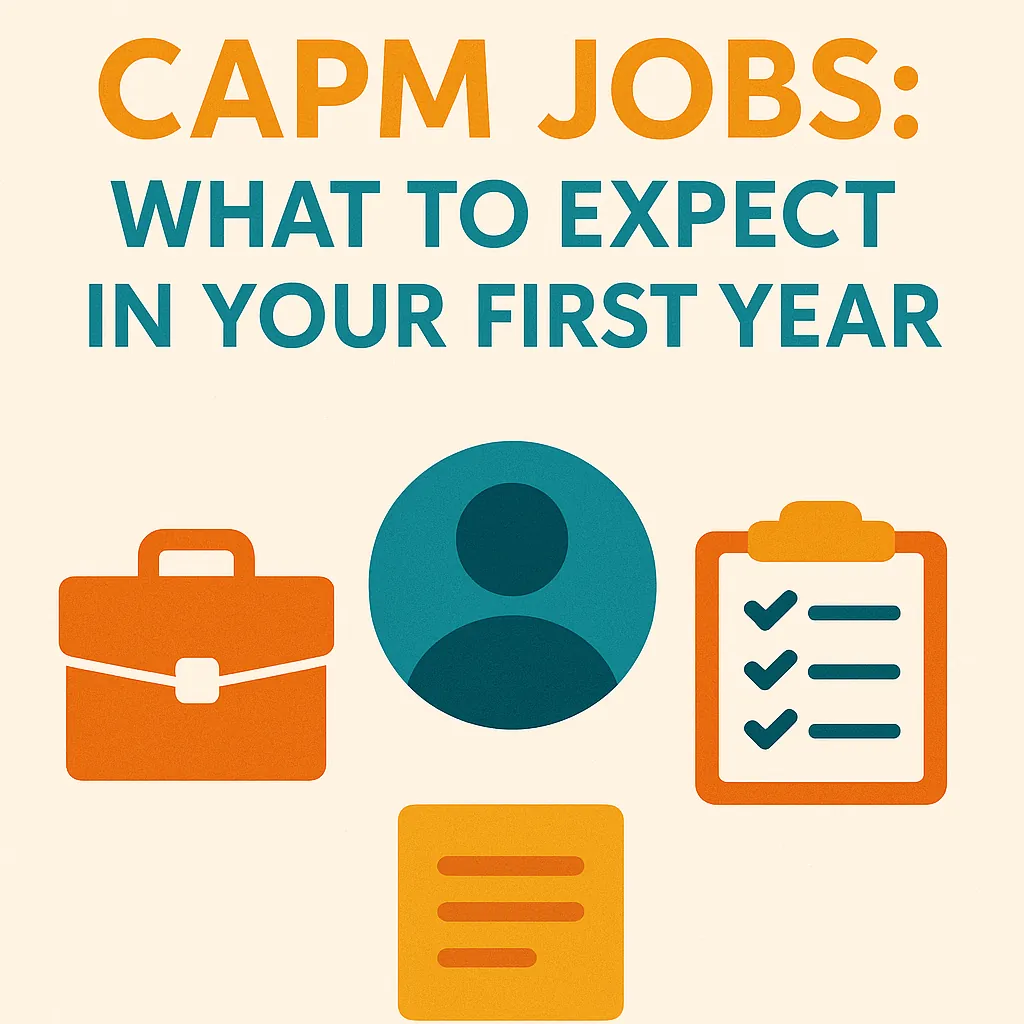Introduction to CAPM and Its Importance
The Certified Associate in Project Management (CAPM) is a globally recognized certification offered by the Project Management Institute (PMI). It serves as an entry-level credential for individuals aspiring to establish a career in project management. The CAPM certification is designed for those who are new to the field and wish to demonstrate their understanding of fundamental project management concepts and practices.
Importance of CAPM in the Project Management Field
The CAPM certification holds significant value in the project management landscape for several reasons:
- Foundation of Knowledge: It provides a solid foundation in project management principles, methodologies, and best practices, which is essential for anyone starting their career in this field. This foundational knowledge makes CAPM holders more attractive to potential employers, as they have demonstrated a commitment to the profession and an understanding of key concepts [3][4].
- Competitive Edge: In a competitive job market, having the CAPM certification can set candidates apart from others who may not have formal training or certification. It signals to employers that the individual is serious about their career in project management and has taken the initiative to gain relevant knowledge [2][3].
Overview of the Certification Process and Prerequisites
To obtain the CAPM certification, candidates must meet specific prerequisites and complete a certification process that includes:
- Educational Requirements: Candidates must possess a secondary degree (high school diploma or equivalent) and complete 23 hours of project management education before taking the exam. This educational requirement ensures that candidates have a basic understanding of project management concepts [13].
- Examination: After meeting the educational requirements, candidates must pass a rigorous exam that tests their knowledge of project management principles and practices. The exam consists of multiple-choice questions that cover various topics within the project management framework [2][13].
Role of CAPM in Career Advancement and Job Opportunities
The CAPM certification plays a crucial role in career advancement for newly hired project managers:
- Job Opportunities: Many employers prefer or require candidates to have the CAPM certification for entry-level project management positions. This certification can open doors to various roles, such as project coordinator, project analyst, or project assistant, providing a pathway to more advanced positions in the future [1][3][10].
- Career Growth: Holding a CAPM certification can enhance career prospects and lead to further professional development opportunities. As individuals gain experience and additional certifications, such as the Project Management Professional (PMP), they can advance to higher-level project management roles, increasing their earning potential and job satisfaction [2][4].
Your First Year as a CAPM Professional
Entering the workforce as a newly certified CAPM (Certified Associate in Project Management) professional can be both exciting and daunting. Understanding what to expect in your first year is crucial for setting realistic expectations and navigating the challenges ahead. Here are some key points to consider:
Typical Roles and Responsibilities in Entry-Level Positions
As a new CAPM professional, you will likely find yourself in roles such as:
- Project Coordinator: Assisting project managers with planning, scheduling, and documentation tasks. This role often involves tracking project progress and ensuring that deadlines are met [10].
- Project Assistant: Supporting project teams by organizing meetings, maintaining project files, and communicating with stakeholders [10].
- Project Analyst: Analyzing project data and providing insights to help improve project outcomes [10].
These positions typically require you to collaborate with various teams, manage resources, and contribute to project planning from initiation to completion [5][6].
Work Environments: Corporate, Non-Profit, and Freelance Settings
New CAPM professionals can find opportunities in diverse work environments:
- Corporate: Many entry-level positions are available in corporate settings, where you will work on projects that aim to improve processes, develop new products, or enhance organizational efficiency [7].
- Non-Profit: Non-profit organizations also seek project managers to help manage initiatives that align with their missions, often requiring a focus on community impact and resource management [7].
- Freelance: Some professionals may choose to work as freelancers, taking on project management roles for various clients. This path offers flexibility but may require a strong network and self-marketing skills [7].
Common Challenges Faced by New Project Managers
Entering the project management field can come with its own set of challenges:
- Time Management: Balancing multiple tasks and deadlines can be overwhelming, especially when managing various stakeholders’ expectations [9].
- Conflict Resolution: Navigating team dynamics and resolving conflicts can be difficult for new project managers who are still developing their leadership skills [9].
- Resource Allocation: Effectively managing resources and ensuring that projects stay within budget can be a significant challenge, particularly in the early stages of your career [3].
Opportunities for Skills Development and Mentorship
Your first year as a CAPM professional is an excellent time to focus on personal and professional growth:
- Skills Development: Many organizations offer training programs and workshops that can help you enhance your project management skills, including time management, problem-solving, and delegation [9].
- Mentorship: Seeking mentorship from experienced project managers can provide valuable insights and guidance as you navigate your new role. Engaging in mentorship can help you build a professional network and gain practical knowledge that is not covered in certification courses [4].
Key Skills to Develop in Your First Year
As a newly hired Certified Associate in Project Management (CAPM) professional, your first year in the field is crucial for laying a solid foundation for your career. Here are the essential skills you should focus on developing to ensure your success in entry-level project management roles:
- Communication and Teamwork Skills: Effective communication is vital in project management. You will need to convey ideas clearly and collaborate with team members to achieve project goals. This includes both verbal and written communication, as well as active listening to understand team dynamics and stakeholder needs. Building strong teamwork skills will help you foster a collaborative environment, which is essential for project success [6][11].
- Time Management and Prioritization: In your entry-level role, you will likely juggle multiple tasks and responsibilities. Developing strong time management skills is essential to stay organized, meet deadlines, and prioritize tasks effectively. By managing your time efficiently, you can increase productivity and reduce stress, which is particularly important in a fast-paced project environment [6][9].
- Understanding Project Management Tools and Software: Familiarity with project management tools and software is crucial for tracking progress, managing resources, and facilitating communication among team members. As a CAPM professional, you should aim to become proficient in popular project management software, which will enhance your ability to contribute to projects and streamline processes [10][14].
- Adaptability and Problem-Solving Abilities: The ability to adapt to changing circumstances and solve problems as they arise is a key skill for project managers. Projects often encounter unexpected challenges, and being able to think critically and develop solutions quickly will set you apart. Embracing a proactive approach to problem-solving will help you navigate the complexities of project management and contribute positively to your team’s success [5][15].
By focusing on these key skills during your first year as a CAPM professional, you will not only enhance your effectiveness in your role but also position yourself for future growth and advancement in the field of project management.
Navigating Workplace Dynamics
As a newly hired Certified Associate in Project Management (CAPM) professional, your first year in the role will be pivotal in shaping your career. While technical skills and project management knowledge are essential, the interpersonal aspects of your job will significantly influence your success. Here are some key points to consider as you navigate workplace dynamics:
- Building Relationships with Team Members and Stakeholders: Establishing strong relationships is crucial for effective project management. As a new CAPM, focus on getting to know your team members and stakeholders. Engage in open communication, show genuine interest in their perspectives, and foster a collaborative environment. This will not only enhance teamwork but also build trust, which is vital for project success [6].
- Understanding Organizational Culture and Dynamics: Every organization has its unique culture and dynamics that influence how projects are managed. Take the time to observe and understand the unwritten rules, values, and behaviors that define your workplace. This understanding will help you navigate interactions more effectively and align your project management approach with the organization’s goals and expectations [8].
- Effective Conflict Resolution Strategies: Conflicts are inevitable in any team setting. As a new project manager, it’s essential to develop effective conflict resolution strategies. Approach conflicts with a problem-solving mindset, listen actively to all parties involved, and seek to understand different viewpoints. By facilitating open discussions and focusing on collaborative solutions, you can help maintain a positive team atmosphere [12].
- The Importance of Feedback and Continuous Improvement: Feedback is a powerful tool for personal and professional growth. Encourage a culture of feedback within your team, where constructive criticism is welcomed and valued. Regularly seek feedback on your performance and be open to making adjustments. This commitment to continuous improvement will not only enhance your skills but also demonstrate your dedication to your role and your team [13].
By focusing on these interpersonal aspects, newly hired CAPM professionals can effectively navigate their first year in project management, setting a strong foundation for future success. Embrace the challenges and opportunities that come with building relationships, understanding your workplace, resolving conflicts, and seeking feedback, and you will be well on your way to becoming a successful project manager.
Setting Goals and Measuring Progress
As a newly hired Certified Associate in Project Management (CAPM) professional, establishing clear career goals and tracking your development is crucial for success in your first year. Here are some key points to consider:
- The Significance of Setting SMART Goals: Setting SMART goals—Specific, Measurable, Achievable, Relevant, and Time-bound—provides a structured approach to your professional development. These goals help you focus on what you want to achieve in your role, whether it’s mastering project management software, improving communication skills, or leading a small project. By defining clear objectives, you can create a roadmap for your career progression and ensure that your efforts align with your organization’s expectations and your personal aspirations.
- Ways to Measure Personal and Team Progress: Regularly assessing both personal and team progress is essential. You can track your achievements through various methods, such as maintaining a project journal, using project management tools to monitor milestones, or setting up regular check-ins with your team. This not only helps you stay accountable but also allows you to identify areas where you excel and where you may need additional support or training.
- Utilizing Performance Reviews and Feedback for Growth: Performance reviews are a valuable opportunity for growth. Engaging in open discussions with your supervisor about your performance can provide insights into your strengths and areas for improvement. Actively seeking feedback from colleagues and stakeholders can also enhance your understanding of your impact on projects and help you refine your skills. Use this feedback to adjust your goals and strategies, ensuring continuous development throughout your first year.
- Identifying Opportunities for Advancement Within the Organization: As you settle into your role, it’s important to keep an eye on potential advancement opportunities within your organization. This could involve seeking out mentorship from more experienced project managers, volunteering for cross-functional projects, or expressing interest in leadership roles. By demonstrating your commitment to growth and your willingness to take on new challenges, you can position yourself as a valuable asset to your team and increase your chances of career advancement.
By focusing on these key areas, newly hired CAPM professionals can set themselves up for a successful first year in project management, ensuring they not only meet their initial expectations but also lay a strong foundation for future career growth.
Continuing Education and Certification Advancement
As a newly hired Certified Associate in Project Management (CAPM) professional, it’s essential to recognize that your journey in project management is just beginning. The first year in your role will be filled with learning opportunities, and embracing a mindset of lifelong education will significantly enhance your career prospects. Here are some key points to consider regarding further education and certification advancement:
- Options for Further Education in Project Management: After obtaining your CAPM, you may want to pursue additional certifications to deepen your knowledge and skills. The Project Management Professional (PMP) certification is a highly regarded credential that can open doors to more advanced project management roles. Additionally, certifications in Agile methodologies can be beneficial, especially as many organizations adopt Agile practices to improve project delivery and responsiveness to change. These certifications not only validate your expertise but also demonstrate your commitment to the field [1][7].
- Networking Opportunities Through Professional Organizations: Engaging with professional organizations such as the Project Management Institute (PMI) can provide valuable networking opportunities. These organizations often host events, forums, and local chapters where you can connect with experienced project managers, share insights, and learn from their experiences. Building a professional network can lead to mentorship opportunities and potential job openings in the future [3][10].
- The Value of Workshops, Webinars, and Industry Conferences: Participating in workshops, webinars, and industry conferences is an excellent way to stay informed about the latest trends and best practices in project management. These events often feature expert speakers and interactive sessions that can enhance your understanding of various project management methodologies and tools. They also provide a platform for you to ask questions and engage with thought leaders in the field [4][12].
- Staying Updated with Project Management Trends and Best Practices: The project management landscape is continually evolving, with new tools, techniques, and methodologies emerging regularly. As a new project manager, it’s crucial to stay updated on these trends to remain competitive in the job market. Subscribing to industry publications, following relevant blogs, and participating in online forums can help you keep your knowledge current and applicable to your work [5][6].
Conclusion: Embracing the Journey
The journey into project management is both exciting and challenging, and understanding what to expect in your first year can set the foundation for your success.
- Recap of Key Points: Throughout this discussion, we highlighted various entry-level roles available to CAPM holders, such as project coordinator, project assistant, and project analyst. These positions are designed to provide you with hands-on experience in planning, organizing, and executing projects, which are crucial for your professional growth in the field of project management [1][4].
- Stay Positive and Proactive: As you step into your new role, maintaining a positive attitude and being proactive in your responsibilities will significantly impact your performance and career trajectory. Embrace challenges as opportunities to learn and grow, and don’t hesitate to seek feedback from your peers and supervisors. This proactive approach will not only enhance your skills but also demonstrate your commitment to your role [2][8].
- Building a Professional Network: One of the most valuable assets you can cultivate in your early career is a strong professional network. Engaging with colleagues, joining project management forums, and participating in local PMI chapters can provide you with insights, mentorship, and potential job opportunities. Networking is essential in the project management field, as it opens doors to collaboration and knowledge sharing [3][9].
In conclusion, as you embrace this new chapter in your professional life, remember that every experience, whether positive or challenging, is a stepping stone toward becoming a successful project manager. Stay engaged, keep learning, and enjoy the journey ahead!
Find out more about Shaun Stoltz https://www.shaunstoltz.com/about/.
This post was written by an AI and reviewed/edited by a human.



